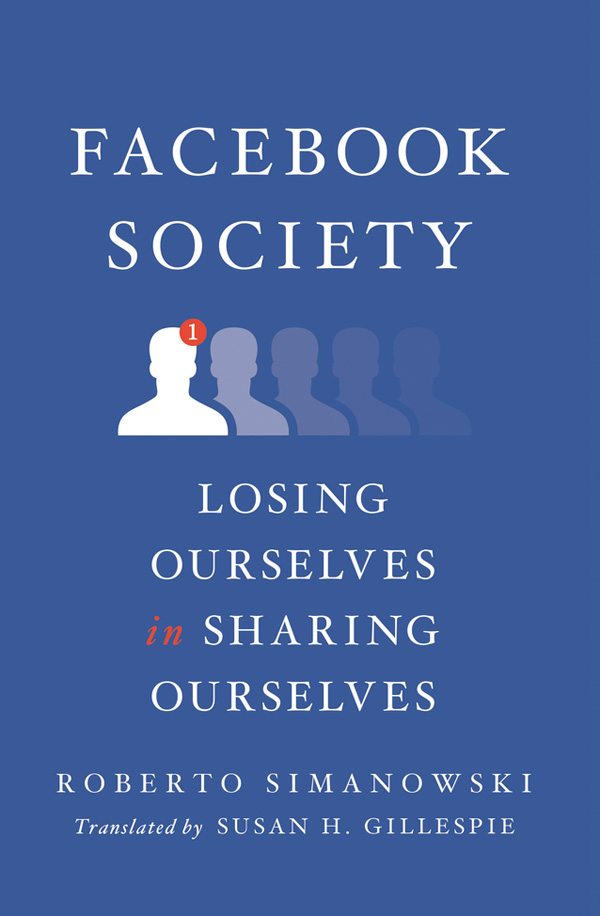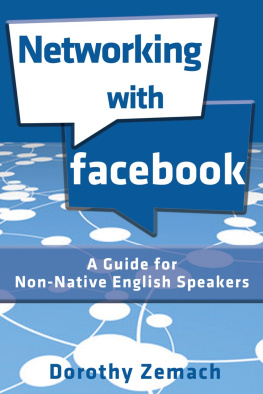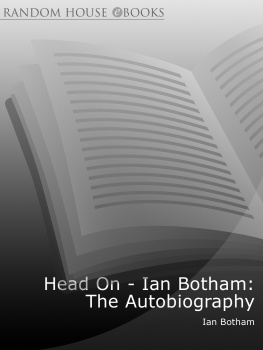Simanowski - Facebook society losing ourselves insharing ourselves
Here you can read online Simanowski - Facebook society losing ourselves insharing ourselves full text of the book (entire story) in english for free. Download pdf and epub, get meaning, cover and reviews about this ebook. City: New York, year: 2018, publisher: Columbia University Press, genre: Politics. Description of the work, (preface) as well as reviews are available. Best literature library LitArk.com created for fans of good reading and offers a wide selection of genres:
Romance novel
Science fiction
Adventure
Detective
Science
History
Home and family
Prose
Art
Politics
Computer
Non-fiction
Religion
Business
Children
Humor
Choose a favorite category and find really read worthwhile books. Enjoy immersion in the world of imagination, feel the emotions of the characters or learn something new for yourself, make an fascinating discovery.

- Book:Facebook society losing ourselves insharing ourselves
- Author:
- Publisher:Columbia University Press
- Genre:
- Year:2018
- City:New York
- Rating:4 / 5
- Favourites:Add to favourites
- Your mark:
- 80
- 1
- 2
- 3
- 4
- 5
Facebook society losing ourselves insharing ourselves: summary, description and annotation
We offer to read an annotation, description, summary or preface (depends on what the author of the book "Facebook society losing ourselves insharing ourselves" wrote himself). If you haven't found the necessary information about the book — write in the comments, we will try to find it.
Simanowski: author's other books
Who wrote Facebook society losing ourselves insharing ourselves? Find out the surname, the name of the author of the book and a list of all author's works by series.
Facebook society losing ourselves insharing ourselves — read online for free the complete book (whole text) full work
Below is the text of the book, divided by pages. System saving the place of the last page read, allows you to conveniently read the book "Facebook society losing ourselves insharing ourselves" online for free, without having to search again every time where you left off. Put a bookmark, and you can go to the page where you finished reading at any time.
Font size:
Interval:
Bookmark:

FACEBOOK SOCIETY
FACEBOOK SOCIETY
LOSING OURSELVES IN SHARING OURSELVES
ROBERTO SIMANOWSKI
Translated by
SUSAN H. GILLESPIE
Columbia University Press New York

Columbia University Press
Publishers Since 1893
New YorkChichester, West Sussex
cup.columbia.edu
Copyright 2018 Columbia University Press
Originally published in German as Facebook-Gesellschaft . MSB: Matthes & Seitz Berlin Verlagsgesellschaft mbH 2016.
All rights reserved
E-ISBN 978-0-231-54434-4
Library of Congress Cataloging-in-Publication Data
Names: Simanowski, Roberto, author.
Title: Facebook society : losing ourselves in sharing ourselves / Roberto Simanowski ; translated by Susan H. Gillespie.
Other titles: Facebook-Gesellschaft. English
Description: New York : Columbia University Press, [2018] | Includes bibliographical references and index.
Identifiers: LCCN 2017058609 (print) | LCCN 2017061792 (ebook) | ISBN 9780231544344 (e-book) | ISBN 9780231182720 (cloth : alk. paper)
Subjects: LCSH: Facebook (Firm) | Facebook (Electronic resource)Social aspects. | Social networks.
Classification: LCC HM743.F33 (ebook) | LCC HM743.F33 S56 2018 (print) | DDC 302.30285dc23
LC record available at https://lccn.loc.gov/2017058609
A Columbia University Press E-book.
CUP would be pleased to hear about your reading experience with this e-book at .
Cover design: Philip Pascuzzo
For Luciana, best friend on- and offline
CONTENTS
I m so sick and tired of it! The hoary old complaints about how spoiled the younger generation is today. The decline of culture. Moral decadence. The alienation of human beings. The technological takeover of communication. Narcissistic flaunting of the self. Restlessness combined with apathy. Arthritis of the thumb and neck. Yet, in many cases, it was the complainers who started all this!
What was it like, twenty or thirty years ago, when they were sitting in the streetcar or the waiting room, buried in their books, in another world, as if the one around them didnt exist? Those fanatical time managers who read even standing up. Sometimes even while they were walking. Like the student in a French film about university life who is walking down the street engrossed in a book and sinks up to his knees in a pond. That was amusing. For it inspired sympathy when students, in trying to understand the world, completely forgot the world around them.
In real life, all that readerly zeal felt more like a kind of pressure. As if it would be a waste of time to be looking around at ones surroundings in the bus station, or spending hours staring out the train window and chatting with the passenger in the next seat, or being open, at the caf, to whatever might come next. They, then, were always holding their book between themselves and the world, always had something to do, as if they didnt have a minute to lose. And today those same individuals complain that young people dont see the world around them!
Yes, admittedly, it can be uncanny to see everyone around us lost in their devices. You could pick your nose, make hideous faces, or murder someone in full public view without anyone noticing. On the other hand, how lost one could feel, staring straight ahead on the bus. How depressing, listening to the idle talk of colleagues over lunch. How menacing, the silence of the married couple in the restaurant. Instead of curvature of the spine, we should be talking about the happy faces that the smartphone is producing every day, eyes that are shining all over the world and among all generationsthe impatient preschooler on an iPad in the waiting room, the elation of the eight-year-old sending a selfie to his friend on his mothers cell phone, the happiness of the taxi driver getting a WhatsApp message in a traffic jam. Even the elderly wax enthusiastic when their grandchildren appear on Skype. And what is more beautiful than a young woman looking contentedly at her smartphone? The sex appeal of a person who knows what she wants and doesnt have a moment to lose? How much more compelling than a student up to his knees in a pond!
Why, then, the outcry, given all the success? Why precisely from the people who started it all in the first place? How small-minded, to insist that there be at least one book on the device, not just Facebook or Candy Crush. How dishonest, to allow excitement only when it comes from focused reading of worthwhile texts? In this way, the fear of technology is paired with cultural conceitunconsciously coupled with the mad hope that after you die life will have lost all its attractiveness anyhow. And it is not even clear why the serious book should still be preferred to distraction. All the criticism of the way young people respond to new media is based on an understanding of the world that was already outdated decades ago. That still places its bets on critique and the future instead of praising the present as it exists. Let them complain all they want about spoiled young people and cultural decline; let them mutually confirm that their era was a better era; let them assure us as convincingly as they can that now everything is going to the dogsI cannot and will not hear any more of it.
Meanwhile, loudspeaker announcements on escalators warn us not to look at our mobile phones. Meanwhile, the police post warning videos showing texting pedestrians being brutally struck down by automobiles. Meanwhile, it is a daily occurrence: passersby who stare into their cell phone the way the student once stared at his book. Resistancedefiantly (head back, eyes rolled heavenward) blocking the path of pedestrians who think they can make it across crowded intersections using only ambient attentionseems helplessly aggressive. They simply avoid you, without looking up. The only possible way to comment on this is to turn it into an image of the future (the anti-isolation cooking pot with built-in smartphone cradle) or a kind of game: Who will be the first to find an unbroken row of ten hunched-over, phone-absorbed passengers in the subway car? A better plan is secretly (in the waiting room or the pub) to use the new technology for old-time purposes: with Kant, not Facebook, on the screen. The smartphone as Trojan horse for academicsthe current era is undoubtedly a fascinating one.
What is it that bothers us (if it does bother us) when we see people all around us immersed in their devices? What do we lack when they ignore us? Are we disappointed that they so brutally avoid the encounter with us? Are we concerned that they are running away from themselves? Why do we think differently about the student in the pond than we do about the smartphoners in the street? Is the value we ascribe to the obsession with media dependent on the number of people who succumb to it? On the type of medium and its contents? On the social model of its marketers? Historians of media know that almost every new medium was met with skepticism and disapproval from the older generation. The complaint about the cultural decline of the young goes back before the Christian era. Yet everyone who has ever given a smartphone to a parent also knows how enthusiastically it is possible, even as a skeptic, to talk about the new technology. The situation is anything but clear.
Thus, when it comes to new media, the more educated among its detractors try to resist the impulse to condemn it too quickly. There are plenty of criticisms: capitalizing on emotions, commercializing communication, self-marketing and self-surveillance, schooling in narcissism and banality, time wasting. It is not as if these criticisms were wrong, in principle. But we need to reflect on the arguments that support them. The reproach of time wasting, for example, only makes sense if there is a normative concept of time utilization, as there was at the height of the Enlightenment, when it was written: Reading merely to pass the time is immoral, for every minute of our lives is filled up with duties that we may not neglect without besmirching ourselves. What sorts of duties fill up our lives today? Is there still a sociopolitical goal for which we ought to be putting ourselves on the line every day and every hour? Does the Enlightenments famous Sapere aude! still call us to continuous self-perfection? Is political and ideological communication really better than the banal and commercial kind?
Font size:
Interval:
Bookmark:
Similar books «Facebook society losing ourselves insharing ourselves»
Look at similar books to Facebook society losing ourselves insharing ourselves. We have selected literature similar in name and meaning in the hope of providing readers with more options to find new, interesting, not yet read works.
Discussion, reviews of the book Facebook society losing ourselves insharing ourselves and just readers' own opinions. Leave your comments, write what you think about the work, its meaning or the main characters. Specify what exactly you liked and what you didn't like, and why you think so.









